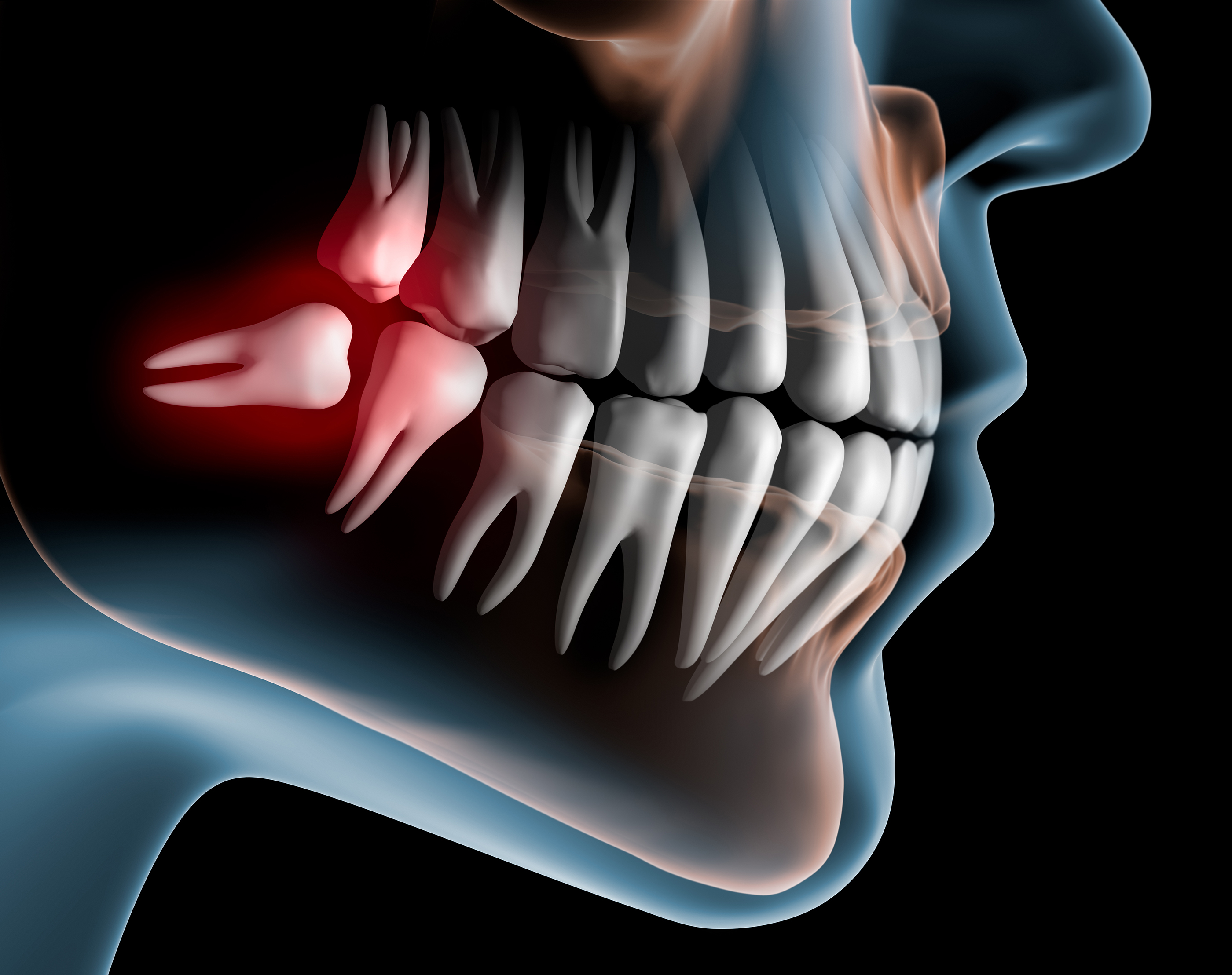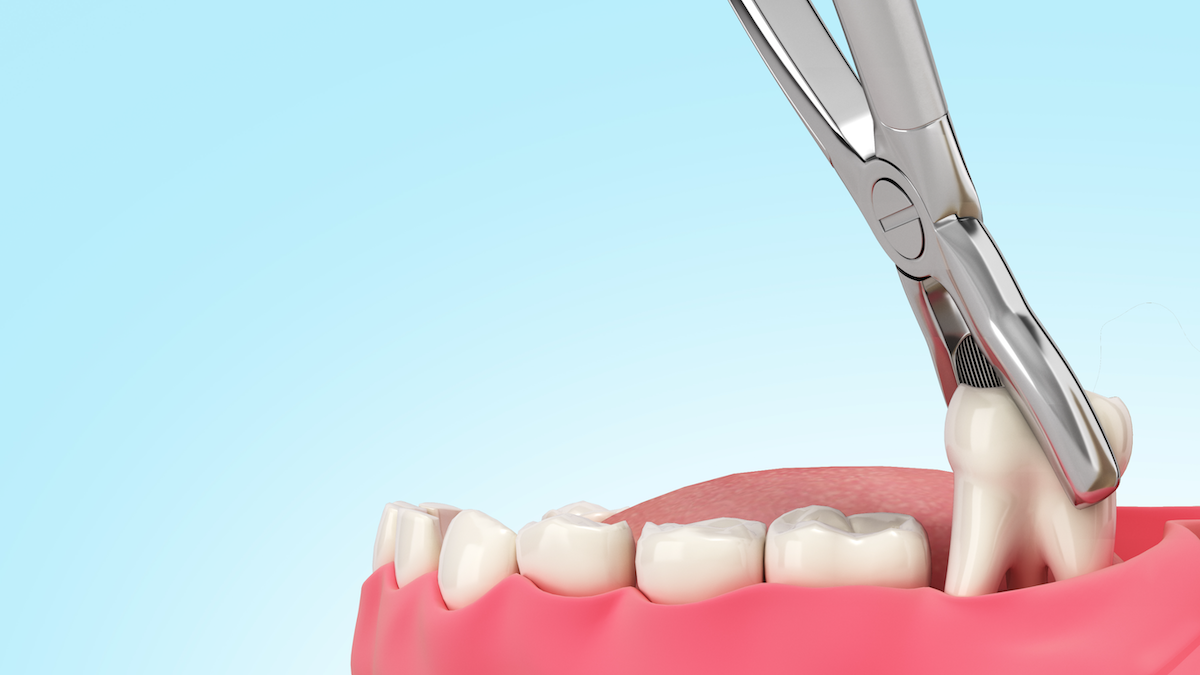What are the Common Symptoms of Impacted Wisdom Teeth?
When it comes to oral health, many of us are familiar with the term "wisdom teeth," but what about "impacted wisdom teeth"? This lesser-known dental condition can cause a world of discomfort, and it's essential to recognize its common symptoms. In this article, we will delve into the world of impacted wisdom teeth, uncovering the signs that could signal the need for a tooth extraction. Plus, we'll explore the options for a "tooth extraction near me."
Understanding Impacted Wisdom Teeth
Before we delve into the symptoms, let's get a better understanding of what impacted wisdom teeth actually are. Wisdom teeth, also known as third molars, are the last set of molars that typically emerge between the ages of 17 and 25. They were once essential for our ancestors, who had diets that wore down their teeth more quickly. However, in our modern era of softer diets and improved dental care, wisdom teeth often serve no useful purpose and can cause more trouble than they're worth.

Impacted wisdom teeth are those that don't have enough room to grow in properly. As a result, they may emerge at odd angles, remain trapped beneath the gum line, or partially erupt. This impaction can lead to various issues, and the first step to addressing these problems is recognizing the symptoms.
Common Symptoms of Impacted Wisdom Teeth
- Pain and Discomfort: One of the most common and unmistakable signs of impacted wisdom teeth is pain. You may experience a constant, dull ache in the back of your mouth or sharp, intermittent pain when chewing or talking.
- Swelling and Redness: The area around the impacted tooth or teeth may become swollen and tender. Inflammation and redness are indicative of an underlying problem.
- Jaw Stiffness: Impacted wisdom teeth can cause stiffness and discomfort in the jaw, making it challenging to open your mouth fully.
- Bad Breath and Unpleasant Taste: Infections associated with impacted wisdom teeth can lead to bad breath and a foul taste in your mouth.
- Difficulty Eating: As the discomfort and pain intensify, you might find it difficult to eat certain foods. Chewing can become painful and may even cause your gums to bleed.
- Headaches and Earaches: Radiating pain from the wisdom teeth area can lead to headaches and earaches, often felt on the same side of the face as the impacted tooth.
- Sinus Pain and Congestion: In some cases, upper wisdom teeth can impact the sinuses, causing sinus pain and congestion.
- Swollen Gums: Swelling in the gum tissue around the impacted tooth is a common symptom. You may notice a bump or lump near the affected area.
Tooth Extraction: The Solution
When impacted wisdom teeth start causing discomfort and pain, a visit to your dentist or oral surgeon is essential. They will evaluate your condition, usually through X-rays, to determine the severity of the impaction and whether extraction is necessary. In most cases, the extraction of impacted wisdom teeth is the recommended course of action to alleviate the symptoms and prevent potential complications.
Tooth extraction is a common and relatively simple dental procedure. It is often performed under local anesthesia, ensuring you remain comfortable throughout the process. After extraction, you will be provided with post-operative instructions for a smooth recovery.
"Tooth Extraction Near Me"
Now that you understand the common symptoms of impacted wisdom teeth and the necessity of tooth extraction, you may be wondering about your options for finding a dental professional to perform the procedure. The key is to look for a reputable dentist or oral surgeon in your area. Here are some steps to guide you:

- Ask for Recommendations: Seek recommendations from friends, family, or colleagues who have undergone similar procedures. Personal referrals can be invaluable.
- Online Research: Use online search engines to find dental practices or oral surgeons near you. Look for patient reviews and ratings to gauge their reputation.
- Consult with Your Dentist: Your regular dentist can often refer you to a trusted oral surgeon or dental specialist who can perform the extraction.
- Verify Credentials: Ensure the dental professional is properly licensed and experienced in wisdom tooth extractions.
- Consultation: Schedule a consultation with the chosen dentist or oral surgeon to discuss your condition and treatment options.
Conclusion:
In summary, understanding the common symptoms of impacted wisdom teeth is crucial to maintaining your oral health. Don't ignore the signs of pain, swelling, or discomfort in your mouth, as they may indicate a need for tooth extraction. Recognizing these symptoms early and seeking prompt dental care is the key to preventing further complications.
If you're in search of a "tooth extraction near me," remember to take your time in choosing a reputable dental professional. A skilled and experienced dentist or oral surgeon can ensure a smooth extraction procedure, leading to a pain-free and healthy mouth. Don't let impacted wisdom teeth disrupt your daily life – take action and seek the care you need. Your oral health is worth it.Top of Form
Comments
Post a Comment